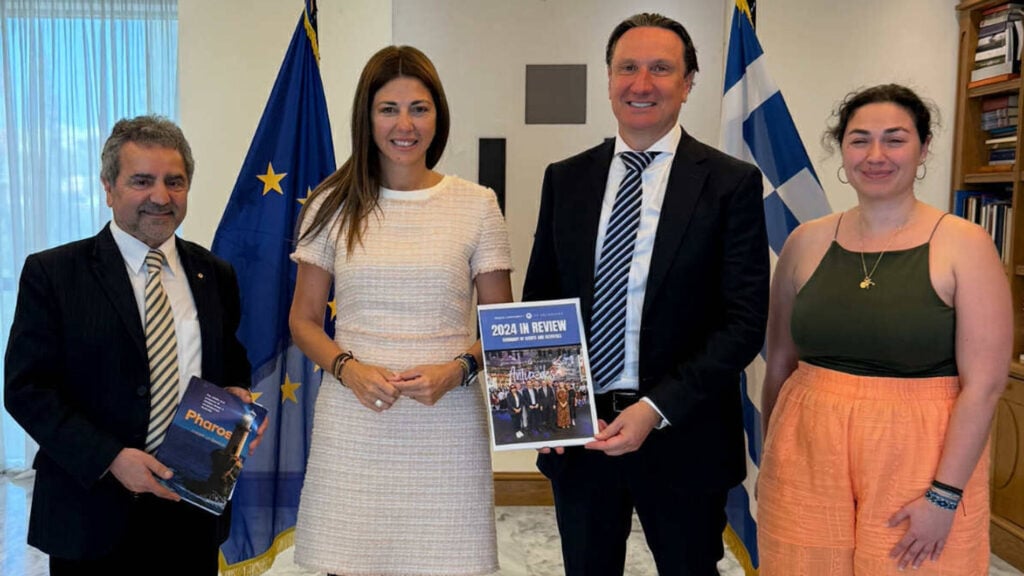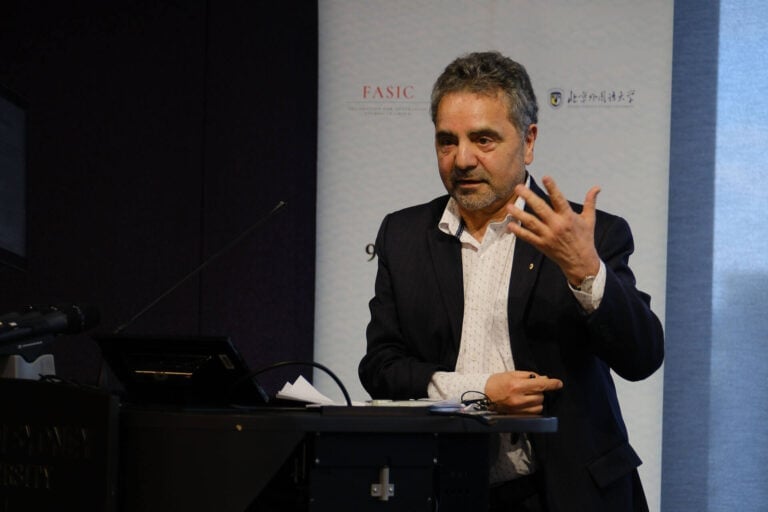A drive to unite Greece and its diaspora behind a single, modern strategy for the Greek language has taken a major step forward after a high-level visit to Greece by Professor Joe Lo Bianco (AM, FAHA), president of the PHAROS Alliance.

Lo Bianco opened the global Early Language Learning & Multilingual Education conference at Aristotle University of Thessaloniki, organised by Professor Thomai Alexiou and the Hellenic Applied Linguistics Association, drawing 150 researchers from 17 countries. He then spoke at a National & Kapodistrian University of Athens symposium hosted by Professor Bessie Dendrinos and the Research Institute for Multilingualism & Language Policy (EIPOL), where one panel was devoted entirely to PHAROS. Greece’s Deputy Minister for Higher Education, Nikos Papaiōannou, praised the PHAROS study, while the Minister of Education, Sofia Zacharaki, sent a message of support.

Practical outcomes
In a substantive meeting at the Education Ministry, Lo Bianco tabled nine proposals focused on strengthening Greek in the diaspora—especially seconded teachers to Australia. Priorities included simpler legislation for postings, unified employment conditions, and allowing non-appointed graduates to serve as substitute teachers abroad.
Two items drew an immediate positive response:
- Extending secondments to meet diaspora needs;
- Opening eTwinning partnerships between Greek schools and diaspora schools, creating live classroom links (Melbourne–Athens and beyond) for project work, authentic language use and community ties.
“This isn’t just about grammar lessons; it’s about friendships, purpose and everyday communication,” Lo Bianco said. “We’re not merely saving a language; we’re building its future.”
Towards a global strategy
With Dr Dimitris Koutsogiannis (AUTH), and drawing on diaspora scholarship by Dr Stefi Nikoloudi (La Trobe) and Dr Antonis Aravossitas (Toronto), PHAROS is drafting a Global Strategy for Greek Language Education. The plan moves beyond piecemeal efforts to a research-led framework addressing identity, digital communication and multimodal literacy.
PHAROS was also invited onto EIPOL’s International Advisory Committee, elevating its role in European language-policy discussions.
What’s next
Over the next six months, PHAROS will finalise the strategy and align Greek, Australian, Canadian and European research with implementation. Milestones include the D.El.Exo: Teaching Greek Worldwide conference in February and a European event in Strasbourg in June.
Vassilis Papastergiadis OAM, president of the Greek Community of Melbourne, helped facilitate the ministerial meeting. “PHAROS and Professor Lo Bianco amplify Hellenism’s voice in universities and international institutions,” he said. “Greek must be recognised as a global language of culture and thought.”
For Greek communities from Melbourne to Montreal, London, Istanbul and Limassol, the message is clear: languages endure when they live in people and places—and when policy, technology and community pull together.
Also read: Sanae Takaichi elected as Japan’s first female prime minister
Source: neoskosmos.com


